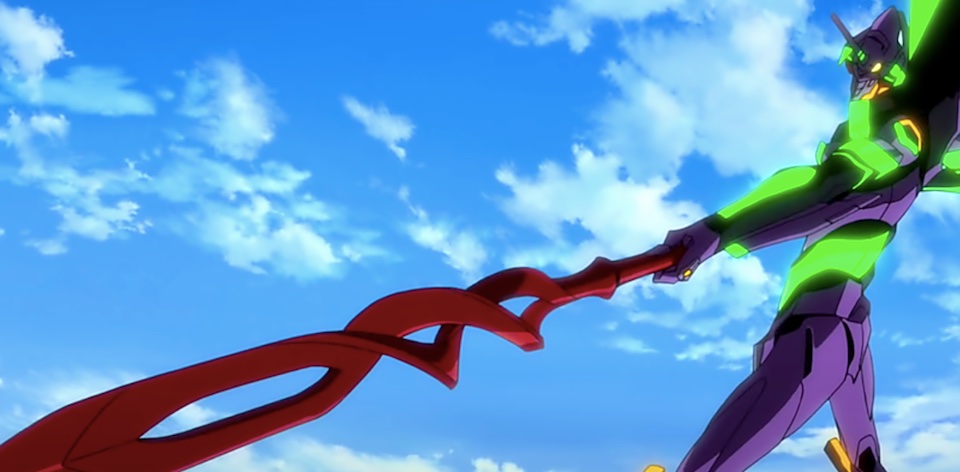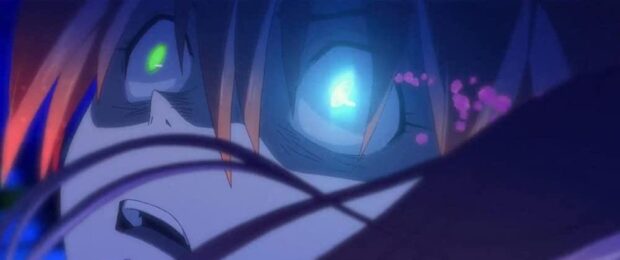There are elements to this review that may be considered (very) minor spoilers. Proceed with caution.
Depending on your point of view, the fourth and probably final film in the Rebuild of Evangelion series has been either 14 years or several decades in the making. When Hideaki Anno relaunched his iconic anime series in 2007, few suspected that it wouldn’t be until 2021 that we would finally see his revised vision come to fruition.
It’s been all the more frustrating for fans given the radical directions taken in its predecessor Evangelion: 3.0 You Can (Not) Redo. Where the first two entries in the film series mostly stuck to an abbreviated (albeit visually shinier) version of the classic 1995-1996 series, a 14 year jump forward in time left us outside of the known universe and in completely new story territory. Or did it?
As the title would imply, EVANGELION 3.0 + 1.01: THRICE UPON A TIME (シン・エヴァンゲリオン劇場版:𝄂) is a direct continuation of that narrative. Opening with a spectacular clash between Willie and Nerv forces, the main story picks up with Shinji, Asuka and Rei wandering what’s left of Tokyo-3. However, life has found a way, with old friends and new living in a settlement near the edge of the city.
At 155 minutes, this film is not just the longest film in the series but one of the longest anime films of all time. As such, it’s easier to consider this a film of at least two major parts. On one hand, there’s several characters being forced to live outside their narrow constructs for the first time, and in the case of Shinji ‘Little Hamlet’ Ikari, finally get over his fatal indecision. The other, of course, is the overarching story of Shinji’s father Gendo and the Human Instrumentality Project — one that is far too complex for a handful of paragraphs. Suffice it to say that neither of them disappoints and they dovetail wonderfully by the end.
Having struggled with budgets in the original series, the visuals in this final chapter are next level. Since the last chapter, Anno has delved further into the live-action world on films like Shin Godzilla. This has directly influenced the scale of the animation, the likes of which have hitherto been unseen on our screens. Pulling from anime talent across the industry, the film — co-directed by Anno, Kazuya Tsurumaki (of GAINAX), Katsuichi Nakayama, and Mahiro Maeda (Blue Submarine No. 6) — switches from CG to traditional cel-animation seamlessly. At critical moments, it strips away all the facade by just using ‘unfinished’ storyboards and line art to lay these characters bare.
What really becomes evident by the end of this film — and you can take this as a spoiler warning if you like — is that Anno considers all of his Evangelion creations to be part of the one umbrella. Amidst all of the giant robots clashing and mind-boggling exposition, there’s still a core story about dealing with anxiety and depression. Anno might have stated that he associates with Gendo more these days, but it is still rare to see an animated film (or any film for that matter) be so open about human frailty and self-worth.
One can only imagine what Anno’s vision would have amounted to in the late 90s with a budget and global reach on this scale. Yet in some ways we don’t have to. EVANGELION 3.0 + 1.01: THRICE UPON A TIME is the culmination of all of the various narratives the series has created over the years. It’s frustrating at times, awe-inspiring at others, and quietly emotional when you least expect it. It is, in other words, Neon Genesis Evangelion.
2021 | Japan | DIRECTOR: Hideaki Anno, Kazuya Tsurumaki, Katsuichi Nakayama, Mahiro Maeda | WRITER: Hideaki Anno | CAST: Megumi Ogata, Megumi Hayashibara, Yuko Miyamura, Maaya Sakamoto, Akira Ishida, Kotono Mitsuishi | DISTRIBUTOR: Toho/Toei Company (JPN), Prime Video (International) | RUNNING TIME: 155 minutes | RELEASE DATE: 13 August 2021 (AUS)







